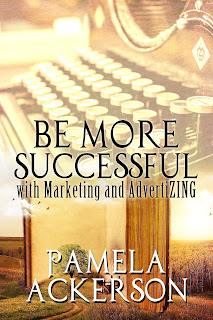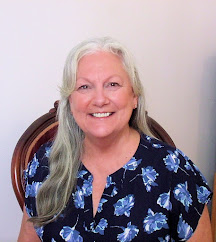Graphic Book Images, Ugh!
Part Two
Hopefully, this article will give you a
better understanding of graphics, images, and the need for quality press-ready
print ads.
As I stated in the last issue, the
language for photo programs are similar. You don’t need to have extended
knowledge to create an ad. That’s what graphic artists are for, that’s why you
hired them for your cover, and/or ad.
There are multiple formats: jpg, jpeg,
jfif, gif, bmp, png, tiff, and pdf to name a few. If you want to know what
format your image is, you can hover over the image on your computer and it will
tell you what the format is, or item type, and dimension. (300 x 450) It may or
may not tell you the bit size, for example, 1mg.
Let’s get to print images. Why do some
print images look so fantastic and some look horribly disfigured? Incorrect
formatting.
If a film camera is used, the images from
a film negative is around 4000 dpi. Yes, you read that correctly, 4000 dpi. If
a magazine, and many still do, use a film camera for their ads they’ll have
sharp, precise high-quality images that are scanned with very expensive
scanning machines. Even after it’s compressed to a pdf file for print and adjusting
the magazine for a pdf, website ad, a film camera is incredible when it comes
to using images for advertising.
Film cameras are not necessarily old
school, but many photographers have switched to digital cameras. High-quality
digital cameras that offer the best resolution are up and coming. Their prices
are also very high for non-professionals.
They are so close to having the same
quality as film. The more megapixels the better the image. (50, 60 megapixels
and up)
So, here you are, either getting an image
from someone or using your own digital camera. The everyday digital camera buff
probably has a camera with 20 megapixels. The magic begins with the photo
program and the experienced of the graphic artist.
There are also programs that will create 3D
images for you but you must understand how to use them for print ad purposes.
This is a png image after it was
downloaded on my computer and adjusted to 150 dpi, 4 x 2.
Insert
Ping Image 1 Here
This is the twitter ad created with the
png.
Insert
Ping Image 2 Here
Since it’s twitter, obviously it’s at a
lower resolution, 150 dpi, 4 x 2.5, and not created for print.
Print ads and images shouldn’t be lower
than 300 dpi. If there is text in the ad, it shouldn’t be lower than 400 dpi. I
prefer 500 dpi for the main reason that once it gets compressed in the pdf file
it won’t lose its image quality.
So how does it look for print? The next
image will be created at 500 dpi (because there is text. Then, it is formatted
for the print shop compressing the image as quality press ready.
The next image you see is considered press
ready.
The way this advertisement was created was
with a 3D image png. The background was jpg and saved at 500 dpi. The size was
created at 8.5 x 5.5. The “unused” border has no text or needed imaging,
allowing for trim and bleed. It’s extremely necessary to make sure there is
nothing cut off by the print shop.
Insert
Halfpageadforarticle500dpi Here
What would happen if I saved my image at
1000 dpi before it goes to print? You may see a slight difference. The pdf
program I use takes any images over 450 dpi and compresses them for the print
shop. It is not the same pdf program we use for the print magazine.
Insert
Halfpageadforarticle1000DPI Here
The compression is set by the person who
is using the pdf program.
Even you can remember, the bigger the
better, you’ll be okay.
This book’s for you. My whole point of writing it is to help all authors. I’ve had many established authors, aspiring authors, and WIP authors ask me a multitude of questions and I was more than happy to help. (WIP-work in progress) I took the most commonly asked questions and solutions and put them in a nifty, absolutely priceless book.
What you’ll find in Be More Successful with Marketing and AdvertiZING:
Social Media Marketing and AdvertiZING for Books or Any Business
Becoming a Bestseller
Saying NO and Being the Bad Guy
How to Write Incredible Click Enticing Promotions
Promoting Your Book With or Without a Publisher
How Much is That Advertisement in the Window?
Self-publishing Doesn’t Have to be a Disaster
How to Make Your Website Awesome
Taking the Plunge into Publishing Audio Books
How to Make More Sales at Book Signings
The Uniform of Success
Purchase Be More Successful with Marketing and AdvertiZING at your favorite bookstore or on Amazon.
E-Book $4.99
Paperback $9.99
Thank you for taking the time to read this.
You can find me:
Amazon.com/Pamela-Ackerson/e/B00QY1ARI4
Wondering what my qualifications are? Don't want to get any advice from someone who doesn't know what they're talking about? I understand! There are too many people out there giving bad advice.
The first thing I'm going to tell you is that the book industry is constantly changing and even the "experts" have to keep their ears to the ground to stay in the game!
Okay, so...Here goes.
I'm President of Marketing and Advertising for AdC Magazine. Affaire de Coeur Book Review Magazine has been in business since 1980. No small potatoes there! We've managed to survive all the ups and downs in the industry. www.adcmagazine.com
I'm an award-winning, Wall Street Journal, Amazon and Barnes and Noble bestselling author. I've been a published author since 1972. Yup, you read that right. My 10th grade high school teacher entered my sci-fi short story in the Science Fiction Reader's Digest Contest and I took first place. I continued to write and publish short stories for several years after that.
A short break--which felt like forever--in 1996 I finished my first novel. I was picked up by a publisher two years later and I haven't stopped since.


No comments:
Post a Comment